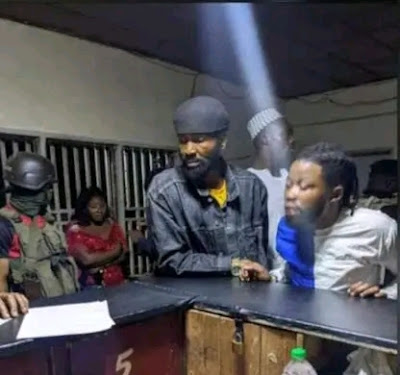NDZAH Chieftaincy Crisis: Administrative Involvement Or A People's Tradition In Peril?
 |
| Fon Akotohm III |
The ongoing chieftaincy crisis in Ndzah, Bamenda III Subdivision, has raised questions about the role of the administration and the future of traditional governance in the North West Region. Following the disappearance of His Royal Highness Fon Victor Ngwa Akotohm II on October 30, 2019, and the subsequent enthronement of Marius Mbomchom Akotohm as Fon Akotohm III on November 6, 2019, the community initially celebrated a seamless succession. However, discord soon erupted, plunging the village into a protracted conflict that persists to this day.
This Thursday, November 21, 2024, the Divisional Officer (DO) for Bamenda III plans to hold consultative talks in Ndzah (Banja), ostensibly to address the chieftaincy dispute. Yet, questions linger: Is this an attempt to resolve the conflict, or is the administration exploiting the chaos to erode indigenous rights and install a politically favorable leader?
Five Years of Talks, No Resolution
Over the past five years, consultative talks aimed at resolving the chieftaincy dispute have repeatedly fallen short. These efforts have often been criticized as superficial, with no meaningful outcomes. The community remains divided, as two factions continue to challenge the legitimacy of Fon Akotohm III. For many, these consultations appear to be stalling tactics rather than genuine attempts at reconciliation.
“The administration claims to mediate, but the crisis worsens each time they intervene,” said a community elder who wished to remain anonymous.
“Are they truly working for peace, or are they using this as a testing ground to impose their own agenda?”
Kingmaking: Tradition or Democracy?
Traditionally, the Grassfields of the North West Region follow a sacred and hereditary process of kingmaking, deeply rooted in the customs and guidance of the ancestral spirits. The seven kingmakers of Ndzah are entrusted with this divine duty, their decisions binding and final. However, the ongoing dispute and the administration's involvement raise concerns about whether kingmaking is being transformed into a democratic act—a process open to political manipulation.
 |
| L-R: Fon Akotohm III, and Fo Angwa IV Of Mankon |
Family heads, historically the bedrock of these traditional procedures, have expressed frustration over being sidelined or coerced during these so-called consultative meetings. “Kingmaking is not a popularity contest; it’s a spiritual process. Politicizing it will destroy our culture,” warned a senior family head.
Testing Grounds for Political Interests?
Some residents suspect the administration’s motives, questioning whether the prolonged crisis serves as a pretext for imposing a politically loyal figure. This strategy, they argue, would enable the administration to consolidate its influence in Ndzah, a village known for its strategic and cultural significance in the Bamenda III Subdivision.
“This is not just a local dispute; it’s about our right to self-determination and the preservation of our culture,”said a youth leader.
“The administration’s interference undermines our sovereignty as a people.”
The Way Forward
As the DO prepares to mediate on Thursday, the stakes are higher than ever. Will the administration uphold the sanctity of Ndzah's traditional governance, or will it further erode trust by imposing a politically motivated solution? The people of Ndzah demand transparency and respect for their indigenous rights.
 |
The chieftaincy crisis in Ndzah is more than a local conflict; it is a litmus test for the resilience of traditional institutions in the face of modern political pressures. As consultative talks resume, the question remains: Can the people reclaim their heritage, or will the administration’s involvement signal the end of a era?
By a Concerned Citizen





Comments
The truth is withen us and most of us don't want to hear or say the truth, but God of Ndzah village is alive